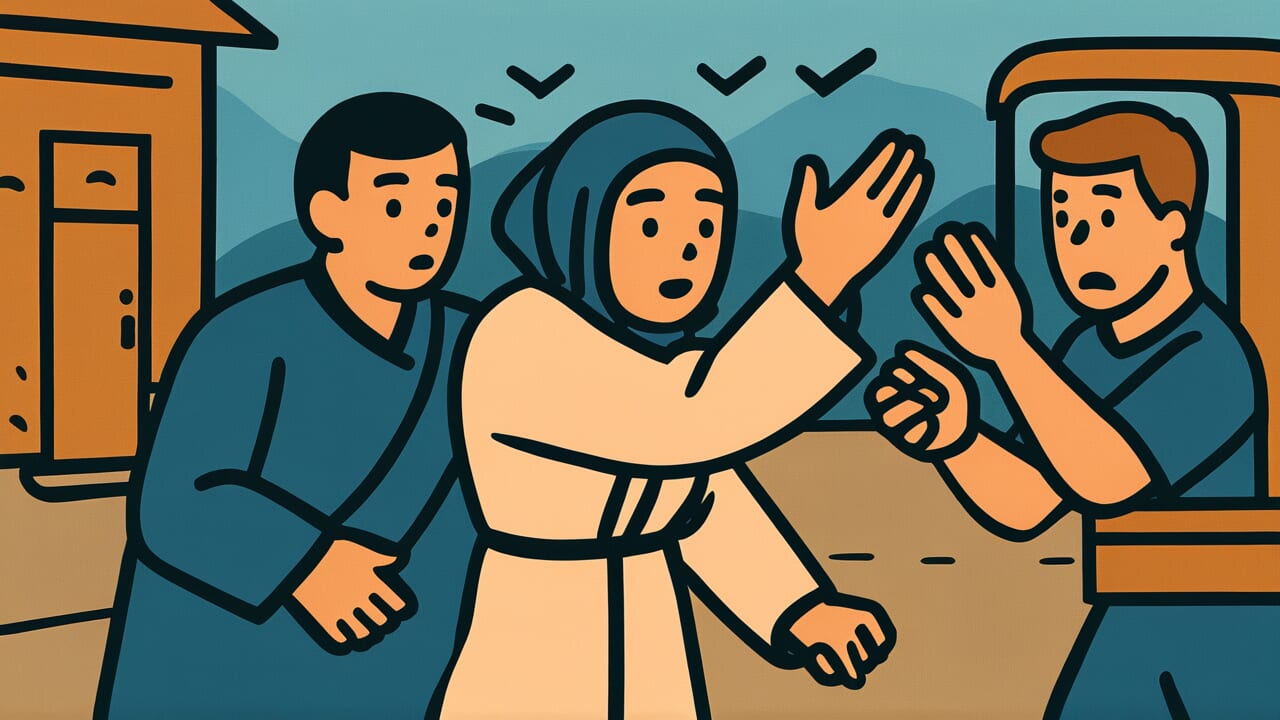How to Read “Infidelity and begging cannot be stopped”
うわきとこじきはとめられぬ
Meaning of “Infidelity and begging cannot be stopped”
The meaning section could not be generated.
Origin and Etymology
There doesn’t seem to be a clear record of when this proverb first appeared in written form or where it originally came from.
However, we can learn something interesting by looking at how the words are put together.
The proverb’s unique feature is how it pairs two seemingly unrelated things: “infidelity” and “begging.”
Infidelity involves the movement of the heart in romantic relationships. Begging is a way of living.
What they share is the quality of being “impossible to escape once you start.”
This proverb likely emerged among common people during the Edo period. It shows sharp observation of human nature.
In that society, infidelity was common across all classes, from samurai to townspeople. Beggars were also a familiar sight.
People watched those who repeatedly cheated and those who continued begging in their daily lives. They noticed the common trait: the “unstoppable nature” of these behaviors.
The expression “cannot be stopped” deserves special attention. It doesn’t say “don’t stop” but “cannot be stopped.”
This wording expresses a strong impulse or habit that goes beyond personal will.
It’s not simple criticism. Rather, it contains deep insight into the instinctive aspects of human nature.
Usage Examples
- 彼はまた別の人と付き合い始めたらしい、浮気と乞食は止められぬとはよく言ったものだ
- 一度楽な道を選ぶと抜け出せなくなる、浮気と乞食は止められぬというのは本当だね
Universal Wisdom
“Infidelity and begging cannot be stopped” touches on universal truths about human behavior.
It reveals how frightening habit formation can be and how powerful instinctive desires are.
Why do people repeat the same mistakes? Because the brain remembers the pleasure or easy path once experienced.
The excitement of infidelity, the freedom from work through begging—these bring temporary satisfaction. The human brain then seeks that satisfaction again.
This proverb has been passed down through generations for a reason. It’s not just moral preaching.
It’s based on deep understanding of fundamental human weakness.
Our ancestors knew that humans have parts that reason alone cannot control. They recognized the strength of instincts and habits that willpower cannot resist.
At the same time, this proverb carries a warning. It teaches how important the first step is.
It shows how difficult it is to turn back from a path once taken.
Humans are not perfect. That’s exactly why we should be careful with our initial choices.
This wisdom is condensed into these few short words.
When AI Hears This
The human brain has an interesting tendency. When comparing “10,000 yen now” versus “20,000 yen in one year,” people often choose the first option.
Logically, the second is better. This is called hyperbolic discounting.
What’s fascinating is how sharply value drops as time increases. For example, 20,000 yen in one year might feel equal to 10,000 yen now.
But 20,000 yen in ten years might only feel worth 3,000 yen today.
The “infidelity” and “begging” in this proverb are victims of exactly this brain mechanism.
Infidelity happens when the immediate reward of an exciting new relationship overwhelms the future value of long-built trust in the brain.
Begging works the same way. The certain small reward of today’s charity looks more attractive than the large reward of future stability through work.
Neuroscience research shows that brain regions controlling this judgment react characteristically in addiction patients.
The nucleus accumbens, which processes rewards, overreacts to immediate pleasure. Meanwhile, the prefrontal cortex, responsible for rational judgment, loses control.
In other words, “cannot be stopped” doesn’t mean weak will. It means the brain’s reward circuit has been literally hijacked by immediate benefits.
This proverb discovered through experience what science now confirms. It recognized that human self-control battles against structural brain limitations.
And it did this in an age without scientific knowledge.
Lessons for Today
This proverb teaches modern people about the importance of the first step and the power of habits.
We live by accumulating small choices every day. We sometimes choose undesirable actions while making excuses.
“Just this once is okay.” “This time is special.” But this proverb warns that “just once” can become the entrance to a habit.
Modern society surrounds us with various “unstoppable habits.” Excessive smartphone use, staying up late, snacking, procrastination—the list goes on.
Like infidelity and begging, these become difficult to escape once the pattern forms.
That’s why it’s crucial to look at your behavior patterns objectively. Simply being aware that today’s choice might become tomorrow’s habit can change your decisions.
You don’t need to be perfect. Just know your weaknesses and choose your first steps carefully.
That alone can greatly change your life.



Comments